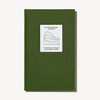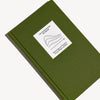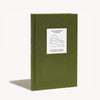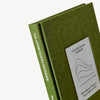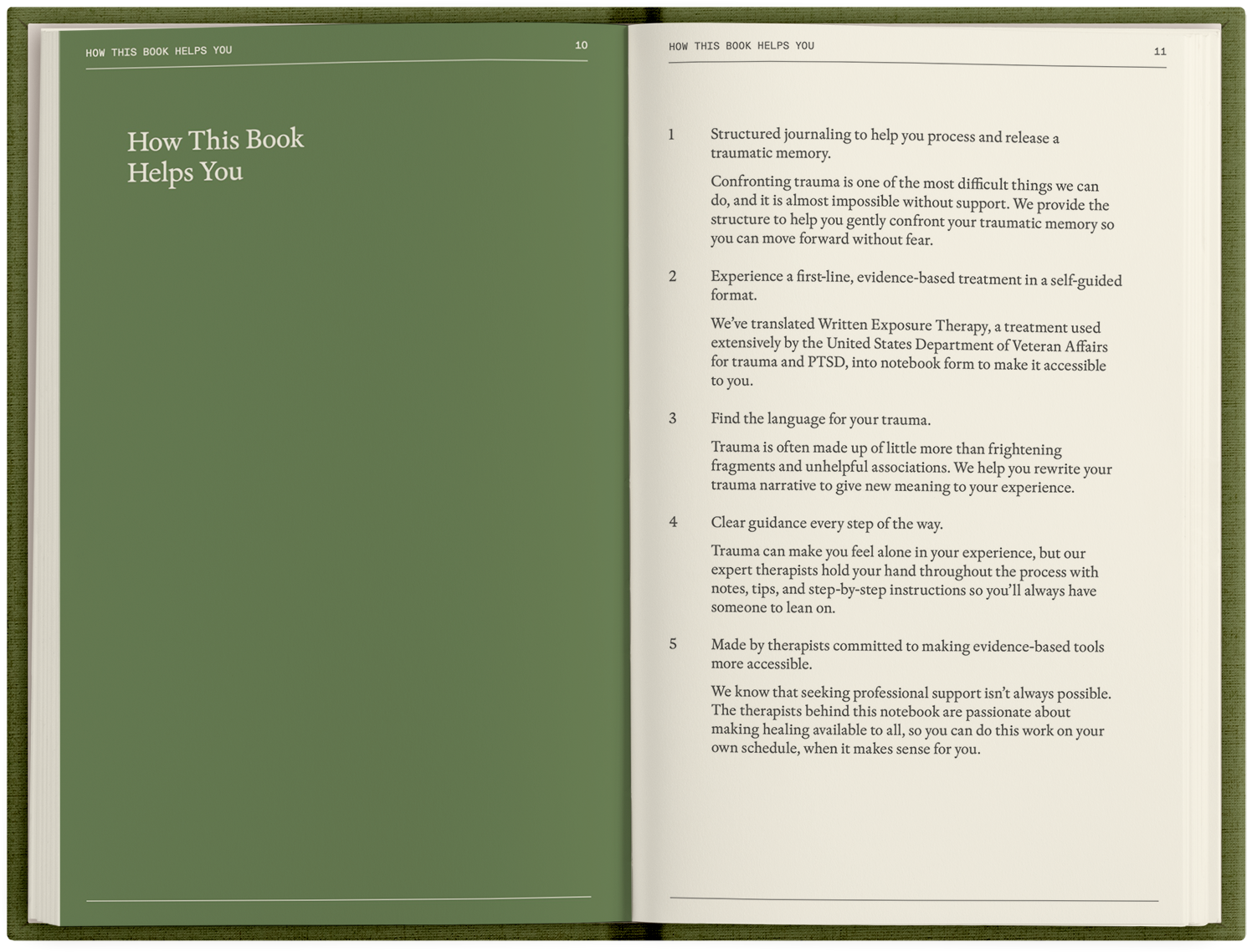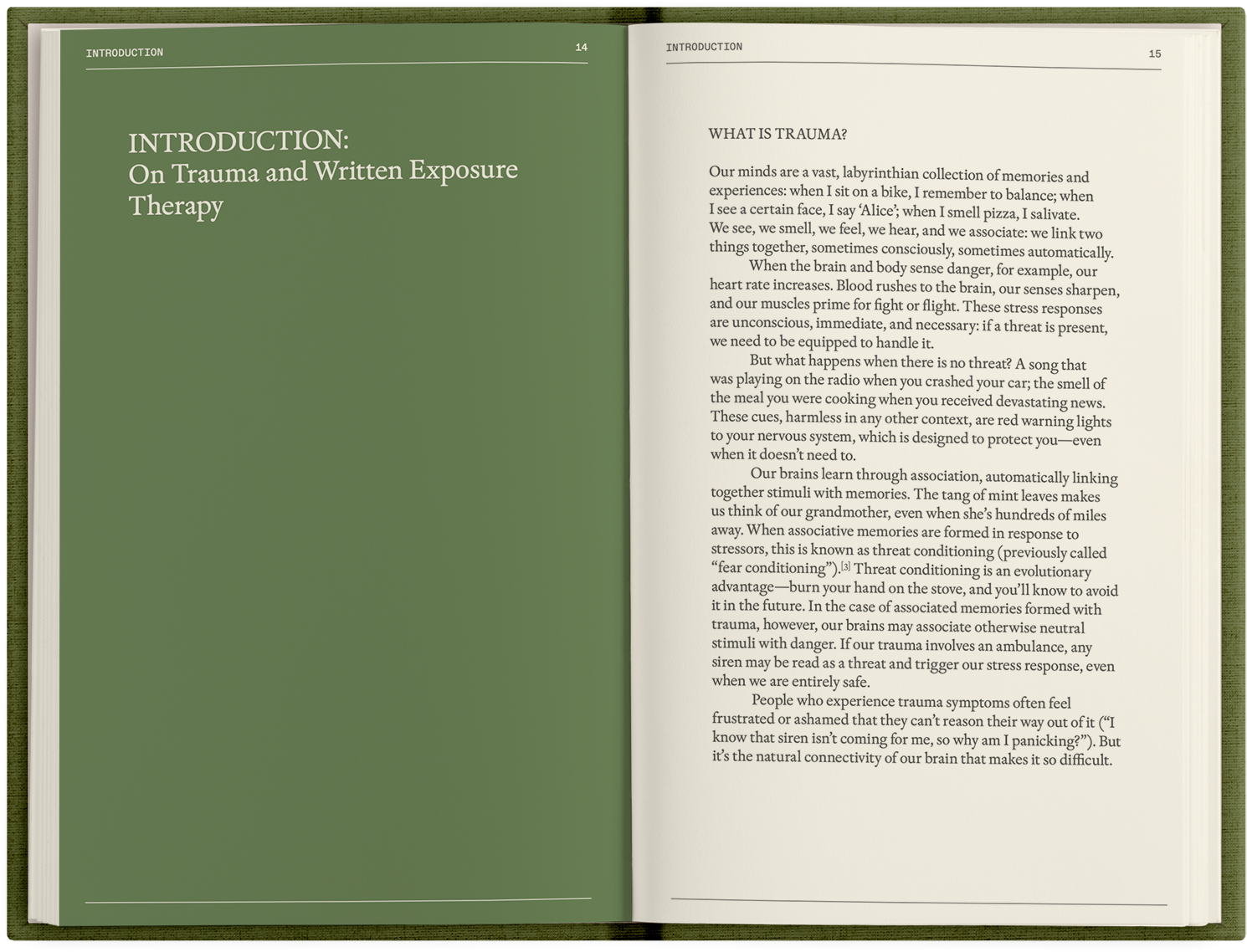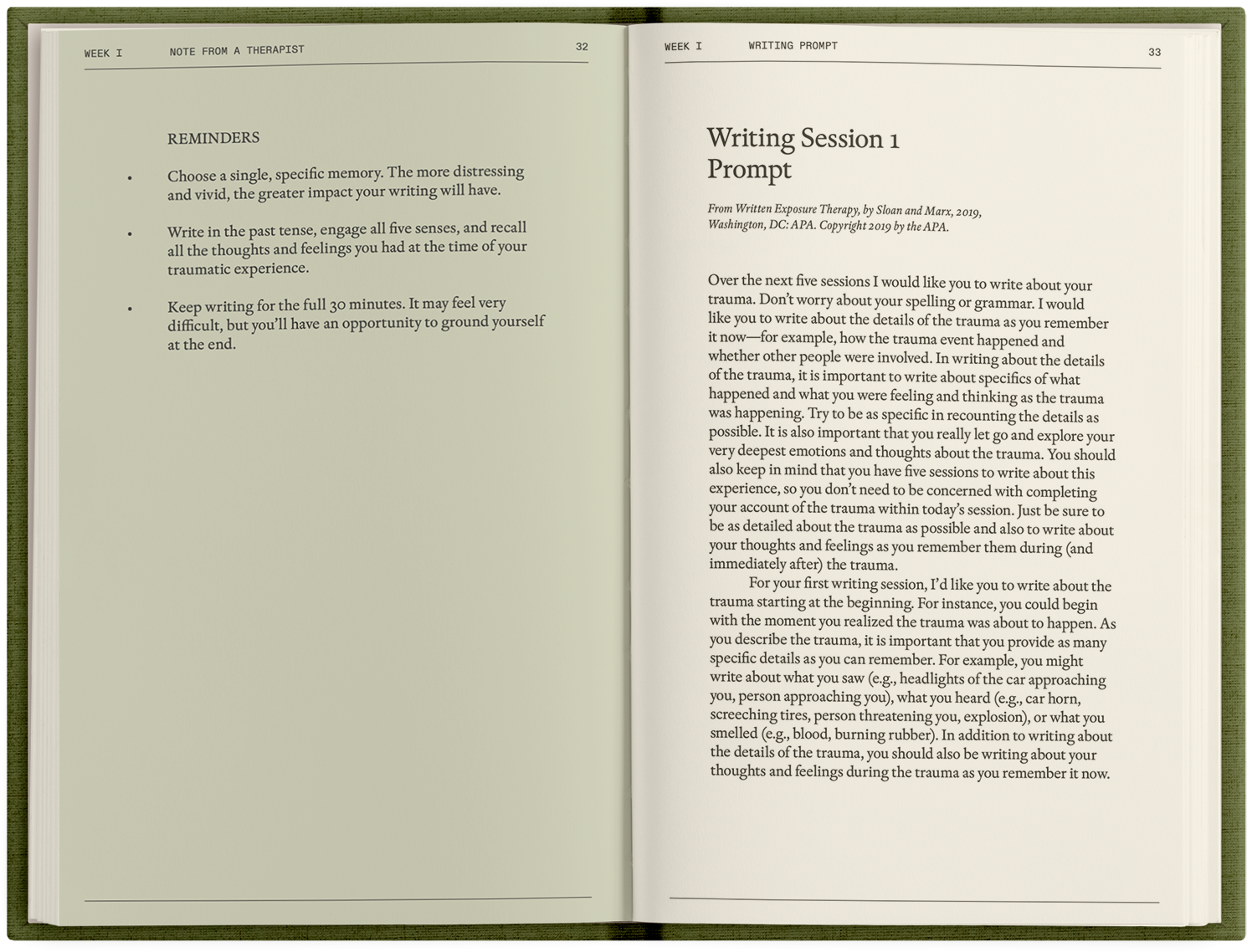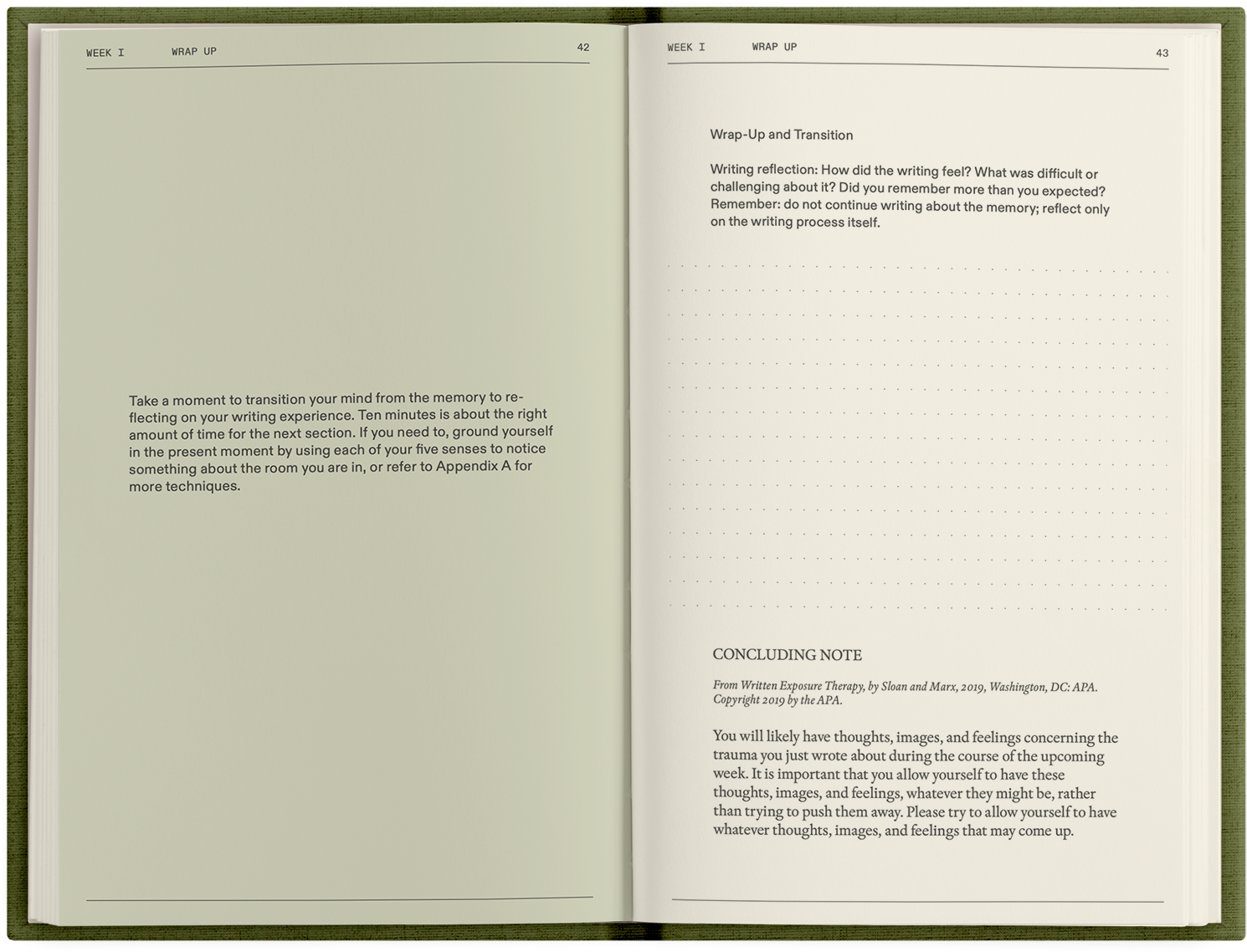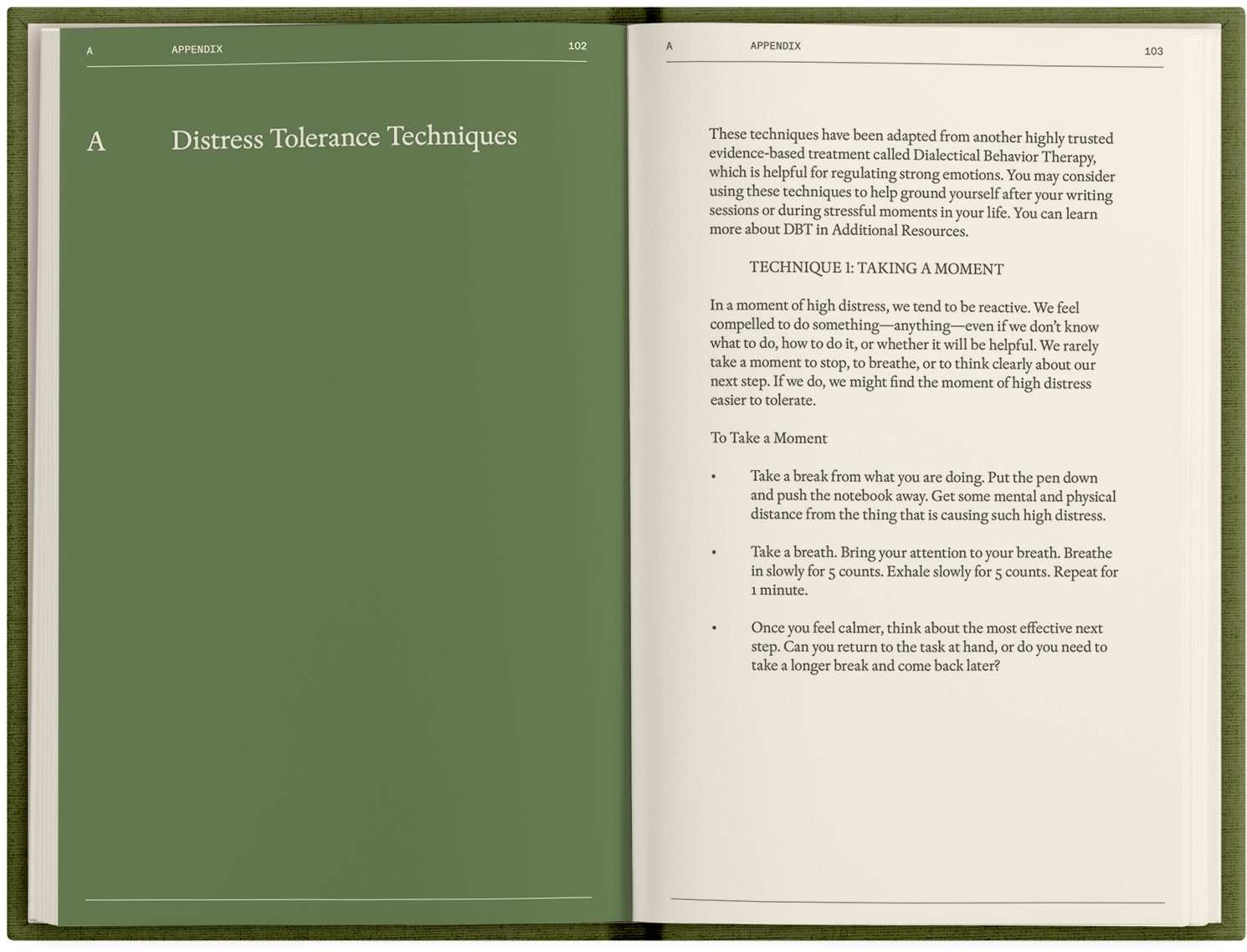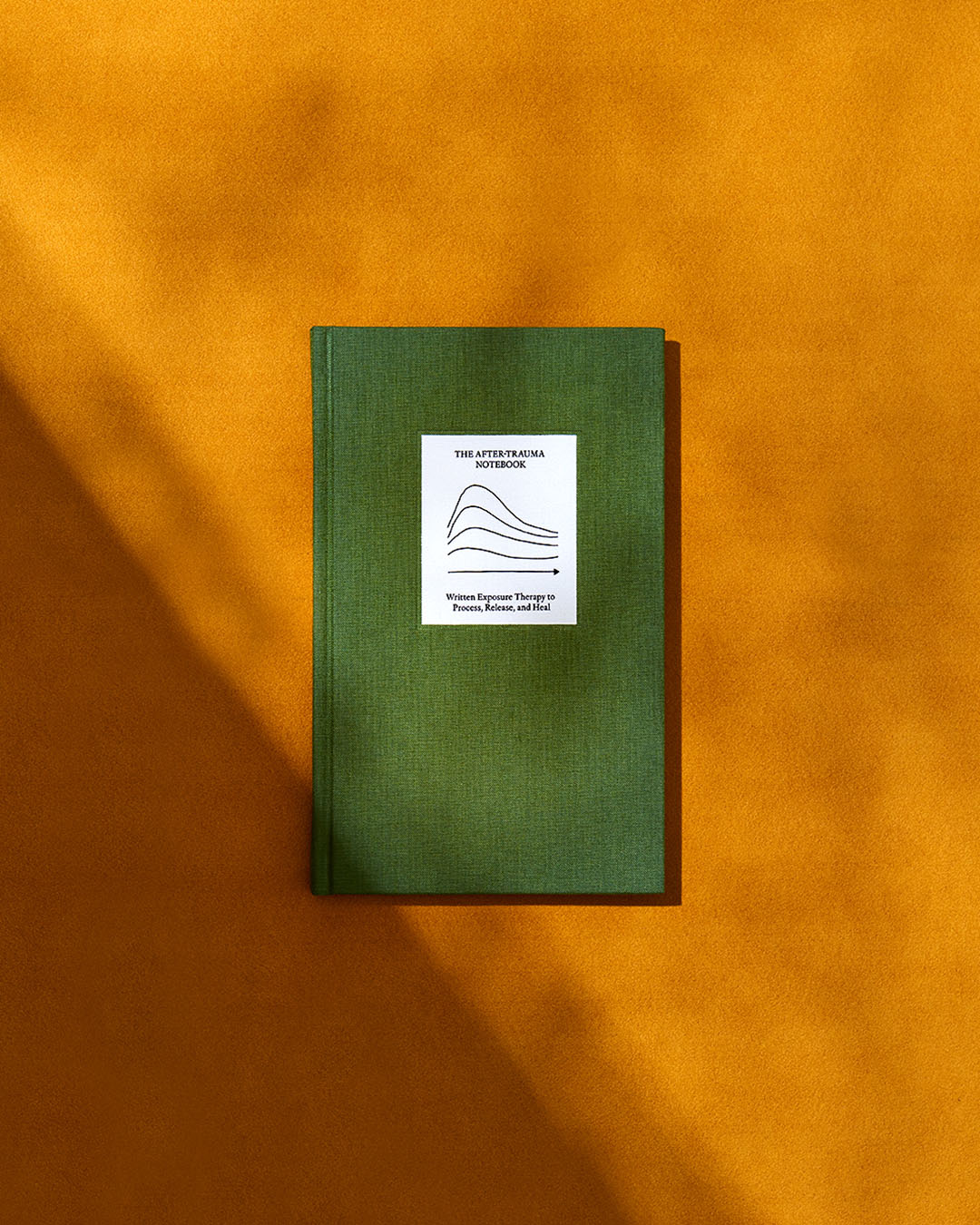Find the words and space to redefine your relationship with trauma. This notebook guides you through Written Exposure Therapy, a first-line treatment for compassionately confronting and reprocessing a traumatic or stressful memory. You’ll work at your own pace with this proven method as you take the first step toward healing.
- 5 weeks of guided journaling sessions, grounded in Written Exposure Therapy
- Notes & Tips from therapists to aid in your healing journey
- Prompts, reflections, and distress tolerance techniques to help you regulate your emotions and track your progress.
- This notebook is filled with 128 pages of 75 gsm cream paper for a smooth & fluid writing experience.
- Hard bound with a flat lay binding, this notebook is lighter than our hardcover Anti-Anxiety Notebook, but filled with the same high-quality, evidence-based content you know and trust.
- (LxWxH): 8.5" x 5.5" x 0.38", 0.51 lb.
WHO THIS HELPS
Maybe you’re suffering from the grief of losing someone, a tough breakup, in-between jobs, or experiencing PTSD. Trauma can take many forms, but Written Exposure Therapy is an effective form of treating and moving on from stressful moments, past and present.
CONTRIBUTORS
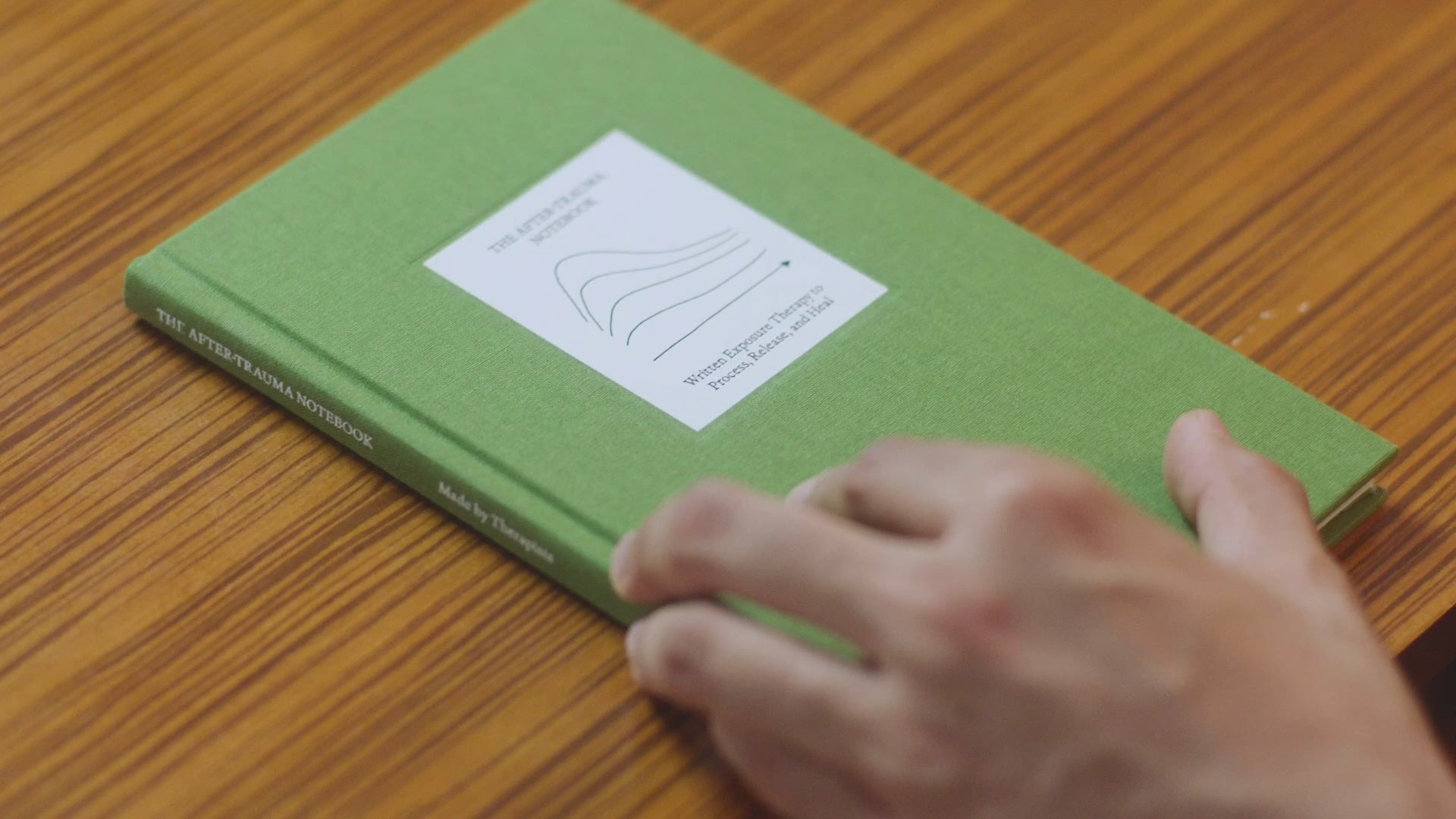
HOW IT WORKS
INSIDE THE BOOK
A compassionate tool for processing your trauma.
Your healing journey starts here. Traumatic experiences, difficult life transitions, and traumatic memories can have a sustained effect on the body, as well as the mind. You’ll process the effects of trauma in a compassionate and caring way that puts you first.
Put yourself back in focus.
Heal from past trauma.
Trauma can cause paralysis or avoidance, which puts those experiences at the center of your life. With our guided notebook, you’ll have expert-approved exercises, based in the most recent findings in mental health. That way, you can put the focus back on you.
